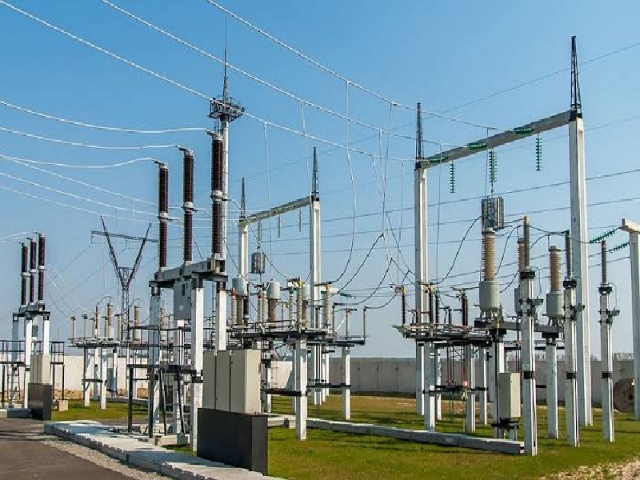Energy
Worsened Blackouts Imminent as 20 Power Plants Suffer Major Problems
Published
4 years agoon

Following the perennial power outages currently being experienced across the country; findings have shown that 20 gas power plants are currently under-performing, leading to power generation dropping below 2000MW.
Nigeria has 23 power generating plants with 11,165MW capacity connected to the national grid. These plants are managed by generation companies (GenCos), independent power providers, and Niger Delta Holding Company. Out of the 23, two are hydro plants.
Read Also:
Investigations showed that the gas plants are currently either generating below expectations, shut down due to lack of gas, or undergoing maintenance.
Investigations further showed that the affected plants included: Omotosho units 5 & 6, Olorunsogo units 3, 4 & 6, Omoku Units 3 & 6, Omotosho NIPP units 3 & 4, Delta units 15, 17, and 18, Afam VI units 11 & 12, Olorunsogo NIPP unit 3, Ihovbor NIPP unit 2, Sapele Steam unit 3, Sapele NIPP unit 1, Odukpani NIPP units 1 & 3, and Okpai units 11, 12 & 18.
Also, Jebba Hydro and Shiroro power generating stations are either out or have limited generation capacity, According to The Punch.
Other affected power generating plants include: Omotosho units 3&4, Olorunsogo unit 1, Delta units 10 &20, Afam VI unit 13, Ihovbor NIPP unit 4, Geregu NIPP units 22&23 and Odukpani NIPP units 2, 4 & 5. These are out either because of fault or for scheduled maintenance.
The two hydro plants, Shiroro and Jebba, are also experiencing generation shortfall due to water management.
Further checks revealed that there were fault and technical problems in the country’s largest gas plant, Egbin, which took it completely off the grid, causing 514MW shortfall.
In Geregu, the situation caused 230MW shortfall, with reported fault at Alaoji NIPP. Olorunsogo, Omotosho, Sapele NIPP, Omotosho NIPP, Omoku, Okpai, Afam VI, Olorunsogo NIPP, Geregu NIPP, and Ihovbor are also experiencing different constraints currently weighing down their performances.
Odukpani NIPP, which was recently shut down due to gas pipeline pigging, is also yet to fully bounce back to full generation capacity.
However, 16 gas plants were on weekend back on the national grid with Delta Power generating the highest at 332MW.
Also on the grid are: Rivers IPP (160MW), Sapele (53MW), Sapele NIPP (94.90MW), and Shiroro Hydro (122MW).
Power generation was put at 1,936.90 mega watts from 3,647MW last recorded.
The Ministry of Power over the weekend confirmed earlier press report when it released a statement apologising to the public over the current dip and stated that there was a partial shutdown of the Oben gas plant to address the repair of critical gas processing equipment.
“The incident, unfortunately, occurred at a time when other power plants on other gas sources are undergoing planned maintenance and capacity testing,” the statement signed by Special Adviser to the Minister of Power, Isa Sanusi, said.
Spokesperson for Eko Electricity Distribution Company, EKEDC, Godwin Idemudia, told the press that the station currently got low allocation from the Transmission Company of Nigeria.
According to Idemudia, as of Saturday, load allocated to it was a mere 240MW out of expected 861MW.
“This affects all our injection substations. For example, Alangbon TS (covers IKoyi, Keffi, Obalende and environs) is expected to be 135 mw but we got 64.4 megawatts. On the overall, instead of getting 861mw, we are given 240.1 mw. We cannot give what we don’t have. The only way out is to load shed so it can go round all our customers,” he said.
The TCN had blamed the situation on a combination of issues ranging from gas constraints, fault, and technical problems within generating plants which caused persistent low generation and consequently low load allocation to distribution companies nationwide.
“This is based on the fact that TCN can only transmit what is being generated by Gencos and presently they are all generating below capacity,” the transmission company stated in a note.
Spokesperson for Electricity Consumers Association of Nigeria, Chijioke James, told the press that electricity consumers across the country were not happy with the low power supply.
Share this:
- Click to share on X (Opens in new window) X
- Click to share on Facebook (Opens in new window) Facebook
- Click to share on WhatsApp (Opens in new window) WhatsApp
- Click to share on Pocket (Opens in new window) Pocket
- Click to share on Telegram (Opens in new window) Telegram
- Click to email a link to a friend (Opens in new window) Email
- Click to share on LinkedIn (Opens in new window) LinkedIn
You may like


Vandals Launch Explosive Attacks on Electricity Transmission Tower – TCN


Nigeria Earns $369m from Electricity Export


ALARM: Power Blackout Imminent in Lagos by Wednesday


DisCos’ Payment of N72 Billion Invoice by GenCos Drops by 50%


Nigerians Grope in Darkness as National Electricity Grid Crashes to 9MW


Energy Crisis: GenCos Blame ₦1.64 Trillion Debt for State of Power Supply










